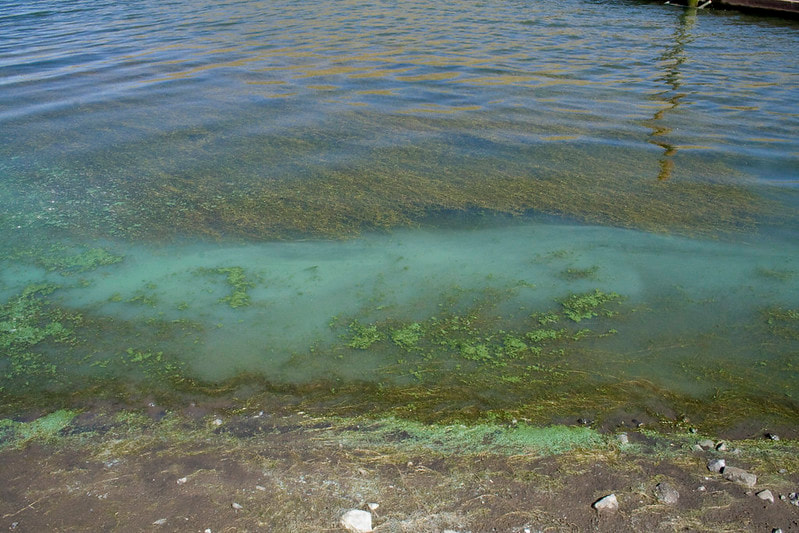|
A toxic blue-green algal bloom has taken over waterways north of the Bull Creek Campground in western Flagler County. The Florida Department of Health is asking residents for a second time to heed the alerts issued by county officials about the harmful toxic bloom, following posted signage on the boat ramp and dockage areas of the county-owned park. “The Florida Department of Health-Flagler (DOH-F) does a great job keeping us apprised of the situation when something like this happens, as well as issuing releases and putting up signage,” said County Administrator Heidi Petito. “They will continue to take water samples and will not remove the signage until the bloom is no longer a threat.” Blue-green algae, also known as cyanobacteria, while on the surface may appear harmless causing water discoloration, floating mats, and emission of unpleasant odors, they pose various risks to human and animal health upon exposure. For some, minor exposure can cause skin irritation and rashes, stomach cramps, nausea, diarrhea, and vomiting, while those sensitive to smell may experience respiratory discomfort; however, it's high, long-term exposure to these toxic blooms that can cause real damage, attacking the liver, as well as your body's nervous system. Blue-Green Algae blooms also can cause damage to Florida's ecosystems, including fish and other aquatic animals. While it can cause kills, fish that were tested from water with concentrations of blue-green algae show that their cyanotoxins do not significantly accumulate in the edible muscle and filets; however, they can in other organs. In an initial release on June 2 by DOH-F, they ask residents and visitors to take the following precautions. The follow-up release shared on June 6 now urges all to continue to follow them and posted signage until further notice:
Blue-green algae are a type of bacteria that is common in Florida’s freshwater environments, the release states. Some environmental factors that contribute to blue-green algae blooms are sunny days, warm water temperatures, still water conditions, and excess nutrients. Blooms can appear year-round but are more frequent in summer and fall. The Florida Department of Environmental Protection regularly collects and analyzes algal bloom samples. If you've spotted one, you can report it to DEP at their toll-free hotline, 855-305-3903, or by online submission here. You can also track blooms and water quality reports at protectingfloridatogether.gov. If you believe you've been sick due to contact with blue-green algae, contact or visit your doctor, or call the Florida Poison Information Center at 1-800-222-1222. To report fish kills, contact the Florida Fish and Wildlife Research Institute at 1-800-636-0511. For other health questions or concerns about blue-green algae blooms, call DOH-Pinellas at (727) 507-4336. Article by Rachael Volpe
0 Comments
Your comment will be posted after it is approved.
Leave a Reply. |
CATEGORIES |
|
|
Vertical Divider
|
Can't get enough?Uncover more of Florida through our channels below!
|
© COPYRIGHT 2015. ALL RIGHTS RESERVED.


 RSS Feed
RSS Feed